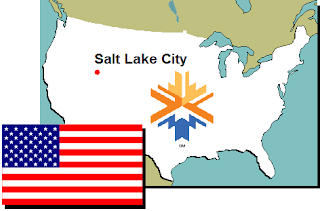Before I talk about the sporting achievements at the 2002 Winter Olympics in Salt Lake City was have to look at the one of the blackest incidents in Olympic history.
Long before the Salt Lake City
The scandal shook and shocked the IOC. Many voices within the organisation were critical of the way this was allowed to happen and called for a complete change in the voting rules. Among the leading voices of discontent was former Olympic champion Mark Tewksbury. He resigned from his position on the IOC Athlete Representative committee in protest, and was supported by many other Olympic athletes who thought the same.
The IOC took a serious look at their rules and drew up a new set that restricted future bid committees and voting members from dealing in “gifts”. The Salt Lake City
The lgbt contingent in 2002 was led by Chris Witty, who won the gold medal and a world record in the 1 km speed skating event. Next comes Dutch speed skater Renate Groenewold in her Olympic debut. She won the silver in the 3 km event. Renate’s compatriot Marieke Wijsman could only reach 17th place in her event.
In the women’s ice hockey competition the Swedish team won the bronze medal. Team members included Erika Holst and Ylva Lindberg, who both came out as lesbian in 2006.
Finally on the ice was Canadian figure skater Emanuel Sandhu. Emanuel had never reached lower that 2nd place since his first Canadian championships in 1997, and this would have qualified him for the previous winter Olympics in Nagano Lillehammer
Out on the slopes, in both senses, was Norway Salt Lake City
Still out on the slopes was Swedish Alpine skier Anja Pärson making her debut. She would go on to win more medals than any other female lgbt Olympian, 6 in all, but only one gold. In Salt Lake City Anja won a silver and a bronze. And in part this was thanks to gay American Nat Brown, who was ski technician to the Swedish and German teams. He had previously coached the US
Before the nest Olympics in the summer of 2004 the IOC made their first proper ruling on transgender athletes. The rule stated that an athlete’s gender at birth should not be a bar to being accepted as a competitor in any sport as a different gender. Although it was very long way from stating at which point during transition would the reassigned gender be recognised, it was still more recognition than was then being given by other sports organisations.
In my next Olympic post we return to the home of the ancient games and the 2004 games in Greece


No comments:
Post a Comment